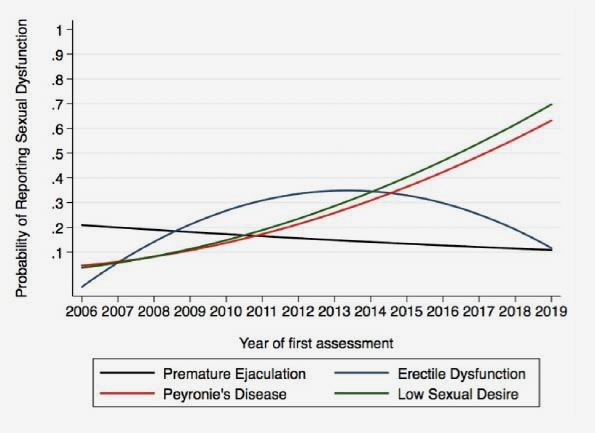The surprising new sexual problems that draw men to health clinics
Why do men go to sexual health clinics? The reasons have shifted sharply over the last decade. Ten years ago, the average age of attendance was 61, and impotence and premature ejaculation topped the list of complaints. But a new wave of problems has risen to the fore: low libido and curvature of the penis, which are now appearing in much younger patients. The average age is 53.
“This is probably driven by greater openness, and men now accepting that many sexual problems can be treated, rather than being something they don’t want to talk about,” says Dr. Paolo Capogrosso, who collaborated on a 10-year study questioning 3,244 male patients at a sexual health clinic in Milan. The research was published in the International Journal of Impotence Research, and presented at the European Association of Urology Conference last week.

Though the research tracks only primary complaints at one clinic in Milan, the researchers believe it is the first study of its kind, and its findings are likely to spur similar studies. In 2009, very few patients requested treatment of low sex drive or Peyronie’s disease (curvature of the penis), and those numbers have jumped up over the last decade. Meanwhile, premature ejaculation patient numbers have lowered since 2006, and erectile dysfunction patient numbers have deflated since 2013.
Capogrosso emphasizes that the overall prevalence of these conditions likely has not changed over time, but that the concerns of men have. Meanwhile treatments such as Viagra and Cialis for erectile dysfunction have become widely available from family doctors, no longer necessitating a trip to a sexual health clinic.
“The drop in age could indicate that both men and their partners are becoming more mindful of optimizing their sex lives. It will be very interesting to see if these trends are also present in other centers around the world,” said Dr. Mikkel Fode, associate professor of urology at the University of Copenhagen, who was not involved in the research, in a release.
(39)



